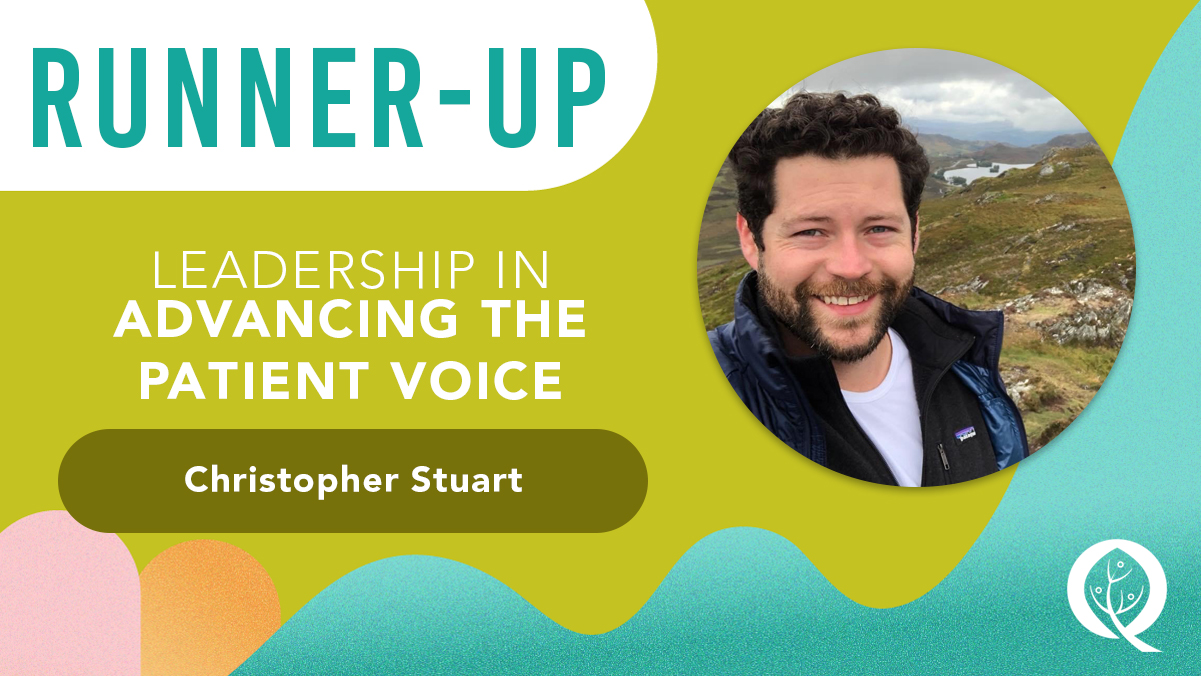- 2023
|
- Runner-Up
|
- Leadership in Advancing the Patient Voice
When Tara Murphy attends an appointment with her physician, Dr. Christopher Stuart, she knows she’s going to be meeting with someone who is more like a partner than a doctor – someone she can trust to not only understand her needs but engage her in the best way to treat them.
Those needs might be challenging, given her battles with an eating disorder and substance use issues. But she feels ownership of her health care journey because of the way Dr. Stuart has worked alongside her for the many years she has been his patient at the Cool Aid Community Health Centre.
“Since the beginning of our work together, patient engagement has been the way he has built my trust, advanced my care plan, and treated my needs,” says Tara. “To Dr. Stuart, patient engagement is an integral part of patient care. Engaging patients supports the harm reduction, trauma-informed, and patient-centred care he prioritizes.
“Because of his support, I have built more trust and confidence in engaging with health care.”
The Cool Aid Community Health Centre partners with Island Health and the City of Victoria to provide health care services to those experiencing homelessness, mental health challenges, infectious disease, problematic substance use and chronic illnesses.
Tara believes Dr. Stuart approaches his work as more of a “calling to help and a commitment to doing this in the best way possible.” It’s inspiring, she says, and empowering.
He leads collaboratively, bringing together care providers to form a team around his patients – with his patients as the most important team member. He develops respectful relationships between patients, caregivers and practitioners, with humility and transparency.
“I liken this to the passing of a baton rather than a game of broken telephone: We are all a team, working together, communicating fully – not a disparate collection of people all with our own ideas. In this, my voice is the central message being passed,” Tara says. “His leadership is never just him; it always includes me as a partner.”
The partnership didn’t happen overnight, she says, but it did start with their first appointments together, as he engaged her and her family in her care through open, sometimes playful, and always humble interactions.
“Together, we have built a team, developed care plans, and carried out my care in a way that works for me. Throughout, my voice is centred: My experiences and knowledge are treated as an equal form of expertise, I am an equal partner at the table for decision-making, and my concerns and needs are included in written documents,” Tara says. “This patient engagement extends to my family members, too, who are equally valued as members on my team.
“This work then advances beyond our one-to-one interactions. When we build collaborations with other practitioners, he models – and sometimes directly communicates – how to centre and listen to the patient voice. In my most recent hospitalization, I have experienced the ripple effect this has had. The nurses, doctors, and other staff I work with have read our plan and are asking me for my knowledge, listening to my voice, and working collaboratively with me. I notice and have heard from practitioners that they have learned so much from interacting with his team and I, as we have modelled new ways of practicing patient-centred and patient-led care.”
Tara says because of the engagement she has experienced, she has been inspired to begin working with a patient advocacy group and a harm reduction education team. Her family and friends are also getting involved.
“In his practices of advancing the patient voice, he has created ripple effects far beyond his own practice. I see his work throughout the clinic, the hospital, my communities, and the health care system at large.”


